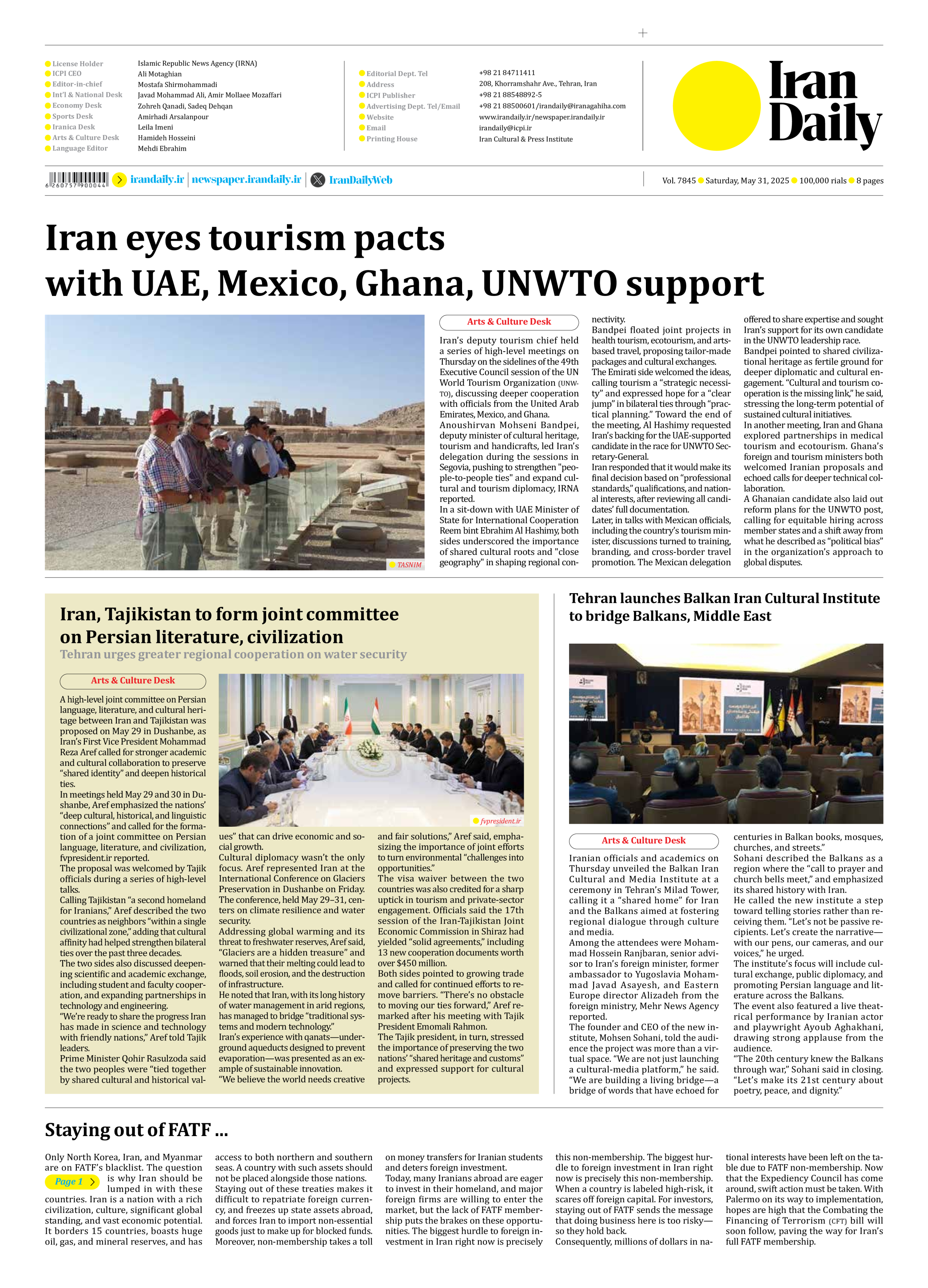
Staying out of FATF ...
Page 1
Only North Korea, Iran, and Myanmar are on FATF’s blacklist. The question is why Iran should be lumped in with these countries. Iran is a nation with a rich civilization, culture, significant global standing, and vast economic potential. It borders 15 countries, boasts huge oil, gas, and mineral reserves, and has access to both northern and southern seas. A country with such assets should not be placed alongside those nations.
Staying out of these treaties makes it difficult to repatriate foreign currency, and freezes up state assets abroad, and forces Iran to import non-essential goods just to make up for blocked funds. Moreover, non-membership takes a toll on money transfers for Iranian students and deters foreign investment.
Today, many Iranians abroad are eager to invest in their homeland, and major foreign firms are willing to enter the market, but the lack of FATF membership puts the brakes on these opportunities. The biggest hurdle to foreign investment in Iran right now is precisely this non-membership. The biggest hurdle to foreign investment in Iran right now is precisely this non-membership. When a country is labeled high-risk, it scares off foreign capital. For investors, staying out of FATF sends the message that doing business here is too risky—so they hold back.
Consequently, millions of dollars in national interests have been left on the table due to FATF non-membership. Now that the Expediency Council has come around, swift action must be taken. With Palermo on its way to implementation, hopes are high that the Combating the Financing of Terrorism (CFT) bill will soon follow, paving the way for Iran’s full FATF membership.







